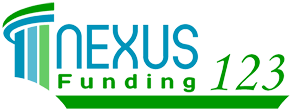5 – MINUTE READ
Wanting to buy your first home is very different than being prepared to buy your first home. It’s fun to browse home listings and dream about what you want. It’s even better to get an idea of what’s possible.
Put yourself in the best position to be approved for a mortgage and understand the home buying process before you jump straight into your home search.
Getting Ready To Buy Your First Home
Many renters assume that if their monthly rent is more than the cost of a mortgage payment, it’s a better idea to buy. Why toss money to a landlord when you could be putting that money into your own home, right? Yes, but it’s not quite that simple. There are a few other things first-time home buyers need to consider.
Saving For The Future
The largest cost associated with buying a home is the down payment and closing costs. A down payment is a percentage of your mortgage that you’re required to pay upfront to get your mortgage.
You may have heard that you need at least a 20% down payment before you even think about buying a home. A down payment of 20% or more does get you off the hook for mortgage insurance. It’s an extra fee added to your monthly mortgage payment that’s insurance for the lender if you default on your loan. It also decreases the size of your monthly payment. You can use our mortgage calculator to see how the size of your down payment impacts your monthly payment.
Luckily, it’s possible to get a mortgage with a much lower down payment. One example is the government-backed FHA loan, which you may be able to get with as little as 3.5% down. If you’re a veteran or serve in the military, you may qualify for a VA loan and not need a down payment at all; you’ll just need to save for closing costs. No matter what kind of loan you get, you can expect to pay between 3% and 6% of your total home loan in closing costs.
Getting ready to buy a home means saving for after you get a mortgage, too. Your lender may require you have enough funds to cover at least a few months of mortgage payments. Lenders also want to know you can afford your mortgage payments, so they look hard at your debt compared to your income before they give you a mortgage.
But it’s up to you to think about and be prepared for the inevitable expenses that come with homeownership, like that $3,000 furnace that breaks down in the middle of winter. It’s a good idea to have a solid emergency fund to fall back on before you purchase a home.
Decide What You Want In A Home
Unlike a car, you usually don’t get to try a home before you buy it, and yet it’s a much larger purchase. That’s why it’s important to spend time figuring out what you want. How close to public transportation do you want to be? How long of a drive are you willing to make to get to work every day?
If you have children or you’re ready to start a family, you’ll want to pay attention to the school district. How many bedrooms and bathrooms will you need? Is a large backyard a must-have?
A defined set of criteria will help make your house-hunt easier and more efficient. A good real estate agent can then help guide you to the homes that meet your needs.
